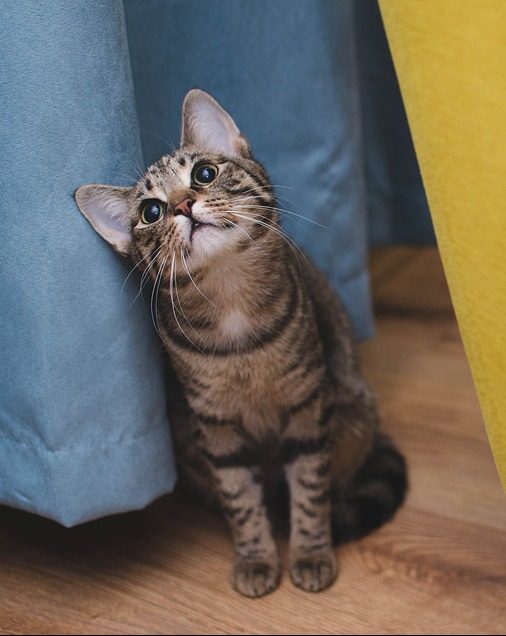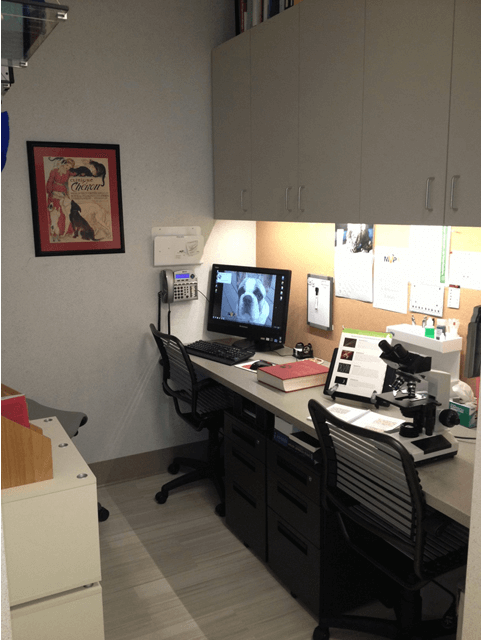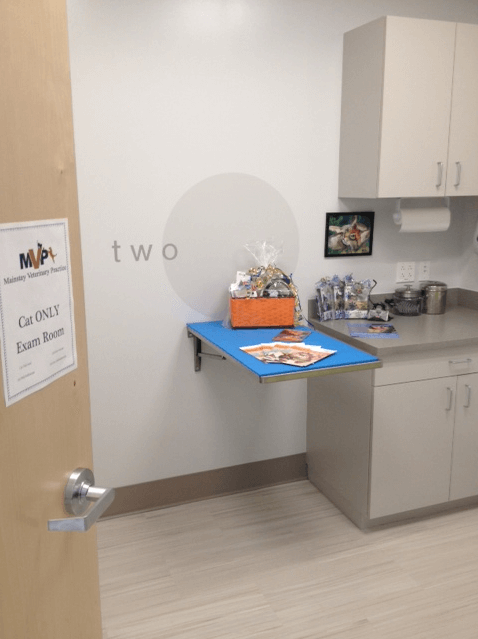When you first adopt or purchase a kitten, we recommend bringing him/her in for an appointment as soon as you are able so that a veterinarian can examine the kitten, review medical history and make recommendations in terms of vaccinations, intestinal parasites, preventatives, diagnostic testing, and diets as well as to address any current conditions.
While breeders and rescues may have offered suggestions in regards to vaccinations and timing, your veterinarian is medically trained and an expert in treating diseases and how to prevent them. Your veterinarian is the best person to evaluate your cat’s needs.
Sample Kitten Plan
8 Weeks Old:
- 1st Kitten Exam
- Fecal Test
- Deworming
- Feline Distemper Series
- Feline Leukemia Series
- FeLV/FIV Testing
- Microchipping
- Flea/Tick/Heartworm Preventative
12 Weeks Old:
- Kitten Progress Exam
- Deworming
- Feline Distemper Series
- Feline Leukemia 1-Year
- Flea/Tick/Heartworm Preventative
16 Weeks Old:
- Final Kitten Exam
- Fecal Test
- Feline Distemper 1-Year
- Feline Rabies 1-Year
- Flea/Tick/Heartworm Preventative
24 Weeks Old:
- Spay/Neuter
- FeLV/FIV Testing
- Feline Distemper 3-Year

Vaccinations
Mainstay Veterinary Practice utilizes current vaccination recommendations provided by the American Association of Feline Practitioners
Rabies
All kittens will receive their rabies vaccine, as required by law, after 10 weeks of age.
Our hospital uses the PUREVAX(r) Feline Rabies, a non-adjuvanted vaccine that is currently the safest vaccine available. This vaccine is required for all cats.
Rabies virus is a fatal infection typically transmitted through bite wounds, open cuts in the skin, or mucous membranes. Rabies is very prevalent in Northern Virginia and has serious human and pet implications.
Some cat owners are under the impression that indoor-only cats do not need to be vaccinated against rabies. The law requires all cats, including indoor-only, to be a vaccine against rabies. Some reasons the vaccination is required by law:
- There is a small, real potential for rabies to enter your household (bats or rodents may bring the virus into your household)
- There is a legal liability should an unvaccinated animal bite or scratch a person
- Rabies is a fatal disease for both humans and pets
- To protect your veterinary team treating your pet
Feline Distemper
The AAFP recommends administering the FVRCP (Feline Viral Rhinotracheitis-Calicivirus-Panleukopenia Combo), commonly referred to as Feline Distemper, Vaccine every 3-4 weeks with the last vaccine administered after 4 months of age. The number of vaccines administered (as long as each kitten has had 2 vaccines 3-4 weeks apart) is not as important as when the last vaccine is administered. Studies have shown that if the last vaccine is not administered after 16 weeks of age, maternal antibodies can interfere with the vaccine and your kitten may not be protected. By administering the last FVRCP vaccine after 16 weeks of age, we avoid interference of maternal antibodies and help ensure your kitten is protected adequately.
Our hospital uses the PUREVAX Feline FVRCP vaccine to protect cats against three viruses:
- Feline Herpesvirus
- Feline Calicivirus
- Feline Panleukopenia
Feline Herpesvirus
Commonly referred to as viral Rhinotracheitis. All cats are susceptible to an infection, particularly young kittens and immunocompromised cats. This virus can be very contagious and easily passed from one cat to another cat. It is transmitted by direct cat-to-cat contact, through sneezing over short distances or from environmental contamination. These carrier cats may have long-term infections that come out in times of stress or with treatment that suppresses the immune system. Common clinical signs are associated with upper respiratory infection signs such as sneezing, eye discharge, and nose discharge.
Feline Calicivirus
All cats are susceptible to an infection, particularly young kittens and immunocompromised cats. This virus can be very contagious and easily passed from one cat to another cat. It is transmitted by direct cat-to-cat contact, through sneezing over short distances or from environmental contamination. Common clinical signs associated with this virus include respiratory signs (sneezing, eye discharge, nose discharge), oral signs (ulcers in the mouth), and signs relating to the joints (lameness, stiffness). Recent outbreaks are associated with a high mortality rate.
Feline Panleukopenia
This parvovirus attacks rapidly dividing cells in the body (intestine, bone marrow, brain) and can potentially cause very severe disease, including death. Clinical signs may include severe diarrhea, vomiting, dehydration, fever, lethargy, and anorexia. The immune system is often compromised and secondary infections may occur. This virus can be very contagious and is typically transmitted by the fecal-oral route but may be transmitted through anybody secretions (i.e. urine, saliva, mucus, vomit).
Feline Leukemia (FeLV)
The AAFP recently changed their recommendation to include the Feline Leukemia vaccine for all cats, including indoor only. This a series of 2 vaccines administered 3-4 weeks apart. This FeLV vaccine is boostered a year after the initial series and then discontinued if the cat is indoors only and has no chance of escaping outside. The FeLV vaccine is recommended for cats that spend anytime outside for additional protection.
We use the non-adjuvanted PUREVAX(r) FeLV vaccine to protect cats against the feline leukemia virus. Feline leukemia is one of the major causes of illness and death in cats. The Feline Leukemia virus is typically transmitted through saliva or nose secretions associated with mutual grooming, sharing food or water dishes, or biting.
Diagnostic Testing
FeLV and FIV
After reviewing your kitten’s medical history, we might recommend Feline Leukemia (FeLV) & Feline Immunodeficiency (FIV) virus testing. The AAFP strongly recommends that all kittens undergo this testing.
Intestinal Parasite Testing (Fecal Tests)
Mainstay Veterinary Practice utilizes current recommendations for dewormings provided by the Companion Animal Parasite Council https://capcvet.org/. We recommend bringing a fecal sample to your initial visit to screen for gastrointestinal parasites commonly seen in kittens. While your kitten may have received multiple dewormings from the breeder our rescue, these are normally broad-spectrum dewormers treating a few common parasites, but a fecal test may identify additional parasites requiring different deworming medication.
Spay and Neuter
We recommend spaying or neutering your cat around 4-6 months of age.
















